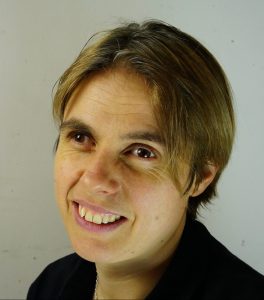Empowering Young people to transform the Disabled People’s Movement
Capacity Building Lead, Lani Parker, reports back on bridging the generational divide in the Inclusive Education movement, and empowering influential youth leaders.
On 15 May 2025, ALLFIE’s Stronger Voices project hosted an important roundtable discussion focused on engaging young people in Disabled People’s Organisations (DPOs). Lani says:
Whilst titles aren’t everything, when I reflect on the original title for this event, Engaging Young People in the Disabled People’s Movement, it doesn’t seem to go far enough for Young Disabled people.
The reality is Young Disabled people continue to be segregated in society. Whether in separate schools, colleges or other institutions, their lives are often removed from the mainstream. Young Disabled people are also often sidelined in activist spaces, despite their involvement in disability politics, and presence in social justice movements, such as those for racial and gender justice.
This gap is recognised and being addressed by organisations such as ALLFIE, for example with projects such as Our Voice and Future Movement Builders, designed to empower Young Disabled people. We believe the Disabled People’s Movement should be led by Disabled Young people, whose experiences are wide-ranging and diverse. But this presents a challenge in both funding and culture. We can’t ignore that currently, front and centre of the DPM, are an older generation of Disabled People whose experiences are invaluable but need to do more to engage with Disabled Young leaders and influencers. There seems to be a deep desire for such change. I was encouraged to see this roundtable discussion provided valuable space to explore these ideas. Here are my thoughts on what I learned through this event.
Capacity Building: Starting with Simple Questions
One of the roles of capacity building within the Disabled People’s Movement is to provide space for people to learn from and inspire each other. This often starts with personal reflections and questions.
At the event, participants were asked: What does (or did) good support look like to you when you were young?
Participants responded by highlighting the need for welcoming spaces, bright smiles, and adults who genuinely see and listen to young people. They envisioned places where everyone can be themselves, where access needs are met (as best as they can be), and where connections, skills, and confidence are cultivated.
These themes were also echoed by young people who took part in a focus group that informed the roundtable structure. They expressed a desire to be treated with respect and dignity, requesting support that builds their confidence and shows genuine listening. None of these ideas are revolutionary but embedding them into our practice may require slowing down and creating space for everyone to grow, challenging existing norms, and re-evaluating potential barriers.
The Social Model of Disability: From Generations to Evolution
Another key discussion revolved around the use of the Social Model of Disability. Some attendees observed that the older generation’s application of the model can sometimes inadvertently close doors rather than open them: Young people feel they need to:
Take the social model, reinterpret it, and make it relevant to .
They also stressed the value of integrating other frameworks, such as intersectionality.
Generational Disconnects and Innovations
The roundtable also explored generational disconnects within DPOs, many of which are shaped by limited resources, small staff teams, and a focus on adult service delivery. Despite these challenges, several organisations are undertaking inspiring efforts,
These initiatives are paving the way for other DPOs to adopt similar approaches in their own unique contexts. Activism, as noted by one attendee, is not something young people simply step into but requires confidence, encouragement, and sustained support.
Bridging Generational Gaps
As a result of the day’s conversations, an older participant made a heartfelt promise at the end of the event: not to become set in their ways. The generational gap was further discussed in terms of social media activism, with recognition that not all young people have access to these platforms. These gaps require thoughtful navigation and understanding to ensure inclusivity.
Voices of Young Activists
 Yewande Akintelu-Omoniyi, ALLFIE’s Our Voice Project Co-Lead, spoke about some positive outcomes and ongoing challenges faced while working with young people on campaigns. Yewande’s reflections underscore the importance of creating spaces for young voices to be heard and ensuring that DPOs address the unique needs of emerging activists.
Yewande Akintelu-Omoniyi, ALLFIE’s Our Voice Project Co-Lead, spoke about some positive outcomes and ongoing challenges faced while working with young people on campaigns. Yewande’s reflections underscore the importance of creating spaces for young voices to be heard and ensuring that DPOs address the unique needs of emerging activists.
To conclude my thoughts on this event – the journey towards transforming the DPO movement to centre young people remains complex but deeply necessary. I am encouraged that the event provided a platform for dialogue, hope, and the beginnings of meaningful change.
![ALLFIE [logo]](https://www.allfie.org.uk/wp-content/themes/allfie-base-theme/assets/img/allfie-logo-original.svg)




